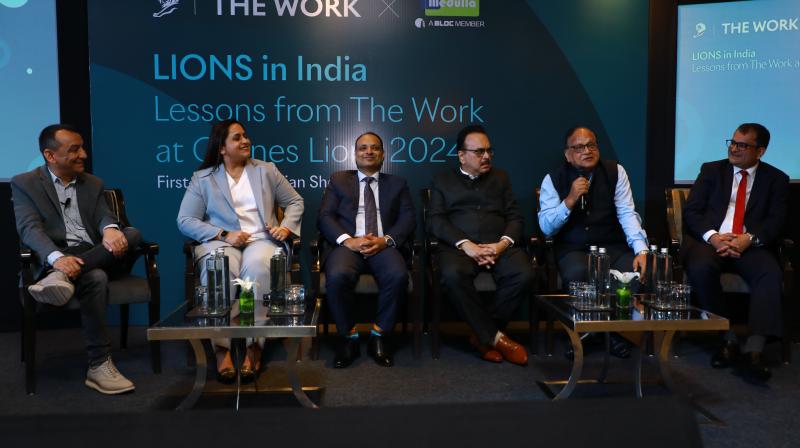Achin Gupta, CEO – One India business, Cipla; Anil Matai, director general, Organisation of Pharmaceutical Producers of India (OPPI); Sanjay Anand, general manager and managing director, Bristol Myers Squibb (BMS); Shweta Rai, managing director – India, country division head – South Asia pharmaceuticals division – South Asia, Bayer and Sudarshan Jain, secretary general, Indian Pharmaceutical Alliance (IPA), discussed the role of marketing in healthcare and pharma on day one of ‘Lions in India’.
Praful Akali, founder and managing director, Medulla Communications, moderated the panel.
The four-day mini-festival aims to deliver lessons from the work that won at the Cannes Lions International Festival of Creativity earlier this year and was hosted in partnership with Medulla Communications.
Matai spoke about the importance of marketing in the industry.
“The majority of the Indian pharmaceutical market is commoditised, so it’s more important here than anywhere else. Indian brands have more than 500 molecules similar to each other, but despite that, there is a differentiation and that comes from branding. So, there’s a marketing story and there is a need for brands to be recognised,” he said.
Gupta added the importance of responsible marketing even though the OTC (over-the-counter) regulations in India are more restrictive.
“The market is very large in any therapy area. You are answering for brand choice and creating therapy awareness. A lot of this is expanding to consumer wellness. OTC regulations are restrictive in India more than in other places. Allergy treatments are available OTC in other markets, but not here. So, you have to focus on those treatments that are allowed to be advertised,” he said.
He also added that the call-to-action for all marketing campaigns should be ‘see your doctor’ as the aim is not for consumers to self-medicate.
Rai echoed the above sentiments and said that organisations must follow what can be communicated and what cannot be.
Jain stated the importance of the marketing function at organisations to have pride in their job function and stated how he did the same while he had that role earlier in her career.
“India works in a highly competitive market which makes the job of a marketer difficult and interesting. Brand marketers and managers are not driving organisations now, but they drove them back in those days. Marketers should have pride in the job and make that difference,” he said.
On differentiation, he added, “Differentiation is everything and that’s not only in the product. Marketing is emotional logic and advertising becomes very important. But it needs thinking, insights, consistency, market research etc. If you do it correctly, you shape the destination of the company and the country.”
On the differentiation bit, Rai, said, “The biggest challenge we face is how the campaign is differentiated. It’s a cluttered market with competition. Insight gathering can help. One needs to be on the field meeting consumers and working with the salespeople, rather than thinking marketing is a head office job. Insight gathering will lead to the best and most differentiated campaigns.
Anand ended the panel by stating that while regulations are in place, marketers should not look at them as hindrances and instead focus on the job at hand.
“In the last two decades, the industry is becoming more regulated. Marketers are looking at the regulations – they should instead look at making communications effective. Leave legal to legal, and compliance to the compliance team. You come up with ideas rather than kill them in your head. Out of the 100 ideas, probably one or two will fly,” he said.













